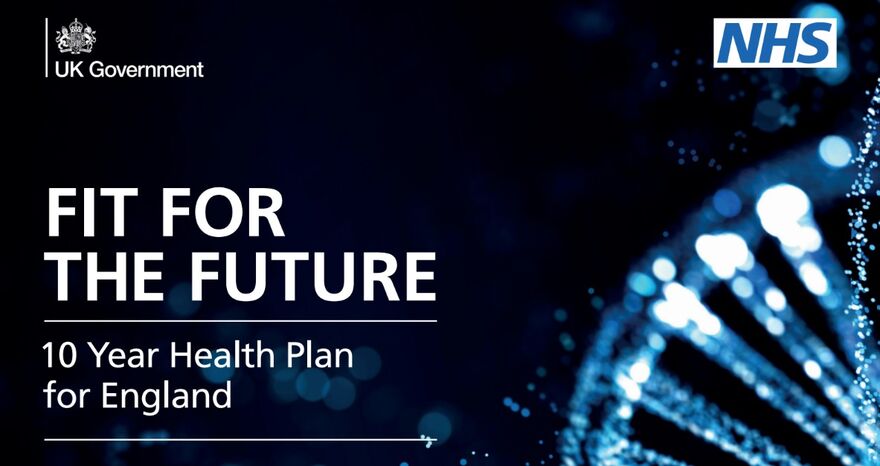
Fit for the future? What does the government's 10 year health plan need to succeed
The government's 10 year health plan, Fit for the Future, was published on 3 July and has sparked plenty of reaction and analysis.
While many welcome the vision and ambition of the government's three radical shifts – hospital to community; analogue to digital; and sickness to prevention – there is some apprehension about the finer details and how the promises will become a reality.
Major changes outlined in the plan to achieve the three shifts include:
- Hospital to community – the creation of a Neighbourhood Health Service, keeping care as local as it can be and supported by Neighbourhood Health Centres in every community when needed.
- Analogue to digital – the transition to a single patient record, giving patients access to wearable technology as part of routine care and expanding the NHS App into 'the front door to the health service' allowing patients to book appointments, communicate with professionals, receive advice and more.
- Sickness to prevention – Working with businesses, employers, investors, local authorities and mayors to create a healthier country together, including plans to tackle obesity and expand mental health support for children and young people.
Crucial signposting and trusted health information
PIF welcomes many of the changes promised but the Fit for the Future plan makes little mention of health literacy or standards to underpin new information services. It is crucial that everything provided by the NHS is health and digital literacy friendly, underpinned by robust, mandatory content standards and that people are involved in the design of new digital products and service models. People will also need support in skills and confidence to use any new devices, such as the wearable technology.
Calls to action
Last week, PIF, the Self Care Forum and the Personalised Care Forum called for the NHS App to include signposting to patient organisations offering information and support. In a joint statement, the three organisations issued the following calls to action:
- Credible, personalised information should be embedded throughout the health and care system. Advice and information should be tailored to the individual’s needs and embedded within an interactive, personalised NHS App that signposts to specialist patient organisations.
- Ring-fenced funding should be provided within the NHS for training in personalising of information. NHS staff and leadership training is required to ensure information and advice is personalised, accessible and supports individual agency.
- All NHS health and care information should conform to robust, mandatory content standards. A maximum reading age of 9-11 should be a requirement for all NHS health and care information. All external information sources should be PIF TICK certified, particularly when signposted by the NHS.
Read more on the statement 'Making the 3 NHS shifts a reality' here.
NHS App will become a 'doctor in their pocket'
The 10 year plan says by 2028 the NHS App will be a full front door to the entire NHS and will offer patients a ‘doctor in their pocket’ while staff will be liberated from a burden of bureaucracy and administration. Through the app, patients will be able to manage a long-term condition through My Care; access and upload health data through My Health; or get extra care support through My Companion. Patients will also be able to leave feedback on the care they have received – compiled and communicated back to providers, clinical teams and professionals in easy-to-action formats. These were a key ask from PIF's Knowledge is Power recommendations following research by PIF and Ipsos into health information access across the UK.
You can read more about the Knowledge is Power report here.
Patients are also being promised access to approved digital tools to manage or treat their conditions through the app. PIF reiterates that the information contained within these tools must be supported by robust standards for the quality of information. Ideally these should meet the PIF TICK criteria.
Patient experience measures and maternity plans welcomed
Other welcome changes promised in the Fit for the Future plan include the use of patient reported outcome measures and patient reported experience measures to help patients when choosing their provider on the NHS App. This is a really welcome way to gather patients' experiences of care.
An independent investigation into maternity and neonatal services is being set up and a new national maternity and neonatal taskforce will be established to inform a new national maternity and neonatal action plan, co-produced with bereaved families. This is another welcome proposal in light of PIF's Maternity Decisions Survey findings.
Download the full 10 year health plan: Fit for the Future on the GOV.UK website here.
